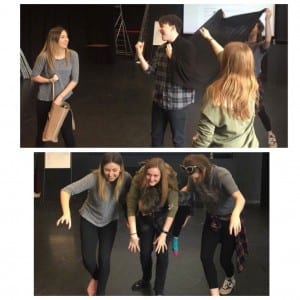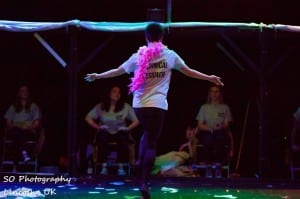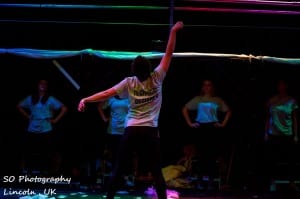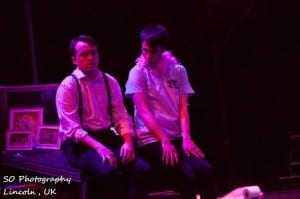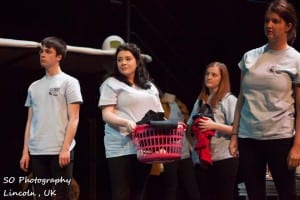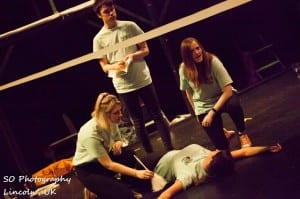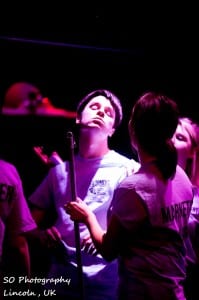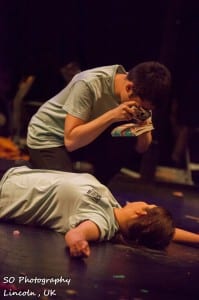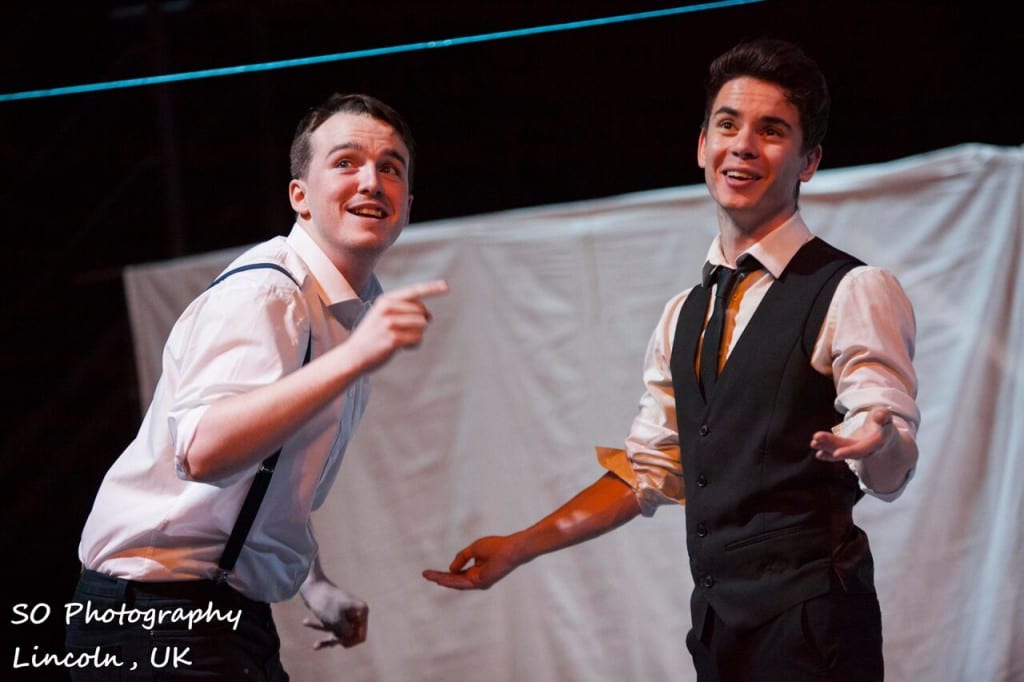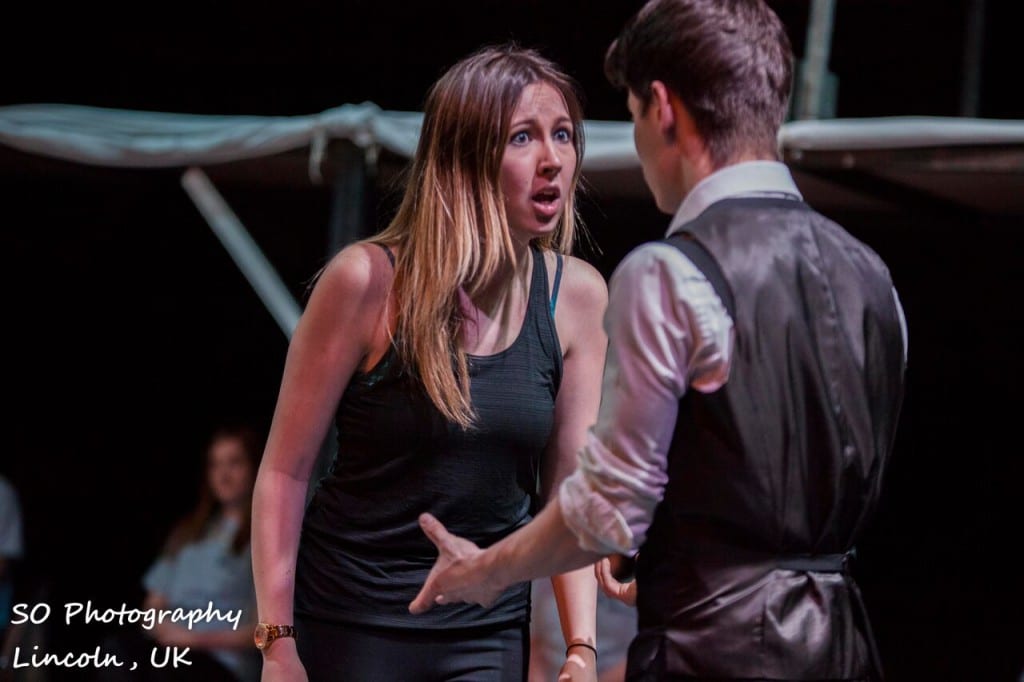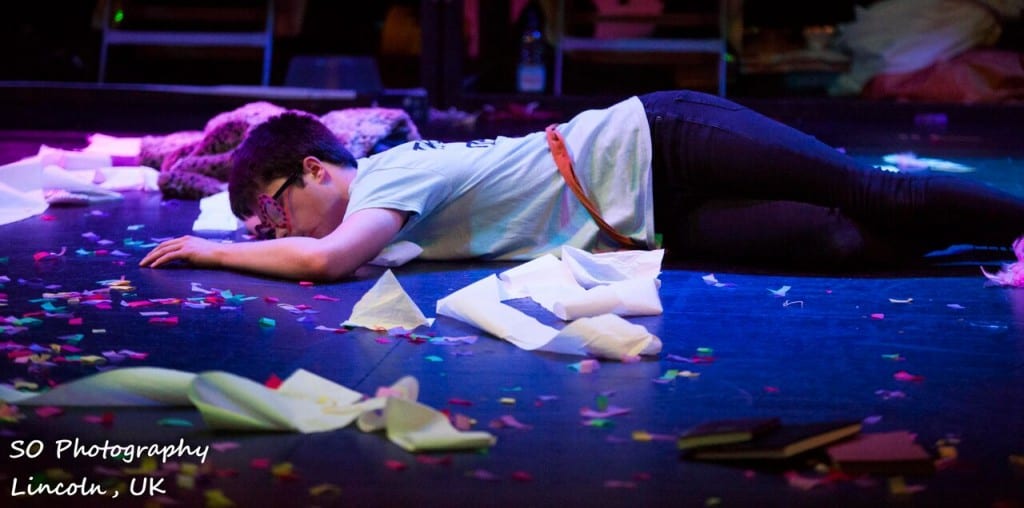‘Now that we are the best. We are going to tour the world with fragment because we’re the best.’ (Goddard, 2017)
Is what most of the members of Fragment Theatre Company would say when the question of the future is brought up.
In all seriousness, this experience has made me believe more in the process of theatre and creating a theatre company. I think the key to it was finding a group of people with the same work ethos and the want to create similar theatre, resulting in the final product being a metaphysical and tongue in cheek interpretation of escapism. Something we had wanted all along. Though we started with a more serious tone, we always knew that our strength would be in dark comedy, a comedy that uses those serious tones but laughs at them.
Making a Monster. (Nixon, 2017)
As this picture shows, throughout the whole process we had this playful approach to the creation of our material and I think the moment we struck gold as a theatre company, was when we fully utilised this approach. We quickly realised that through the metaphysical and DIY style of theatre that we were making, we also were achieving this comical approach to the serious nature of escapism.
Talking about the comical approach we brought to our show, I feel like this had more of an impact then we realised. Even in the tech and dress run, we realised how much quicker and witter the script was. Plus the tongue in cheek and darker comedy was amplified by the audience being there, as was seen by the laughing section in Roxy’s section. This was a serious section, however due to the shows tone, the audience joined in laughing which created a really dark and sadistic moment. That was when I fully knew we had achieved the comical approach to a serious topic.
As well, the DIY aspect of our theatre company means that it creates a fun and quirky presentation of our shows. This was fully utilised with the writing scene, which on show day, found a new level of comedic effect.
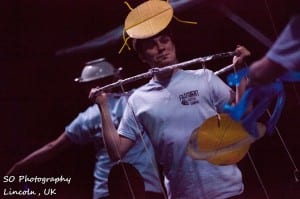
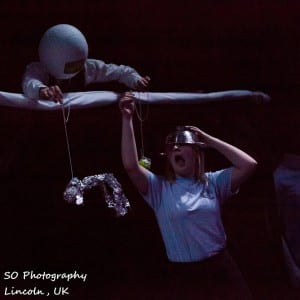 The Space Scene comes alive. (O’Donnell, 2017)
The Space Scene comes alive. (O’Donnell, 2017)
Looking towards the future of Fragment Theatre Company, and I see a company that could take their manifesto and create more great content. The shows we would be able to produce, especially within the current political and social climate, would bring a bit of the comedy back to this world. At least on the stage and for some time afterwards, in the minds of our audience. We would of course have to scale down Exit This Way to make it more tour able but I think this is totally achievable and would add more to the play, due to our use of DIY theatre. I feel like due to the metaphysical and DIY aspect of our company, Arts Council Funding would be fully utilised to create a show that could easily be toured around. This is already seen by the fact that all our Props and Costume could be placed into my car and transported around Lincoln, and after dealing with the set and lighting, we could easily have a show that works around the country.
Overall Fragment Theatre Company has developed into a thing that I can be proud of. We stayed true to ourselves and our creativity, even in the face of worries that our style of comedy wouldn’t work with a live audience. We created a company that wanted to bring a bit of fun and humour back to this world, that is finding itself in a rut of sad and evil stories. This isn’t to say that we sugar-coated the world though, we just showed that it is fine to laugh at yourself and the problems within this world. All-in-all, I’m very proud of Exit This Way and Fragment for producing a show that doesn’t need to rely on favouritism or pre-existing opinions and successfully showed the quirky nature of the people within it.
Works Cited
Goddard, C. (2017) Blog Sesh in the Library.
Nixon, E. (2017) Fragment Theatre Company’s Gallery.
O’Donnell, S. (2017) Fragment Theatre Company’s Tech and Dress Run.
